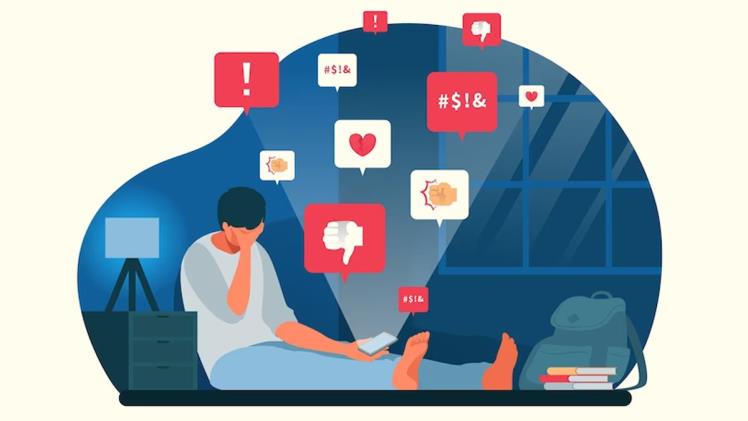Social Media and Mental Health

Social media provides users with a fast way of sharing electronic communication and content, connecting with family and friends, finding news and information, meeting new people and meeting old acquaintances. But social media use also has potentially negative repercussions which may harm one’s mental health if used excessively or too frequently – for instance leading to increased anxiety and depression as well as decreased overall life satisfaction. This article details ways of minimizing its negative impacts while managing it in an effective manner.
Nearly everyone on earth now uses some form of social media platform. Social media accounts are now the primary way that young people communicate and connect with each other and the outside world, as well as being used by businesses to market their products and services. Unfortunately, several studies have linked increased use of social media with poor mental health and wellbeing outcomes.
One of the primary concerns related to cyber-bullying lies with its potential impact. Cyber-bullying can cause anxiety and depression for teens. Furthermore, body image issues may arise as teens compare themselves with photos posted online which have often been edited extensively to make bodies appear better than they actually are in real life.
One major source of concern regarding social media use and sleep is its potential influence on sleep patterns. Studies have linked excessive social media usage with decreased or interrupted rest, leading to serious mental and physical health effects; especially among adolescents. Teenagers can suffer from anxiety, depression, fatigue, poor performance in school/work settings and memory loss from excessive social media usage.
Researchers don’t yet know whether social media is entirely to blame for these negative outcomes, but they do know it has a profound influence on behavior. Social media’s design draws you in and keeps you checking, similar to addictive activities such as gambling, drinking alcohol or smoking which create psychological cravings for dopamine release (when someone likes or reacts positively to a post), leading you back into checking social media; even psychological addiction may ensue from this behavior compulsion!
However, it should be noted that research into this area has an unfavorable track record and psychologists tend to blame new technologies for mental health problems when there is insufficient evidence. Therefore, it’s essential that users are wary about what they post online, particularly anything potentially harmful which may end up public. It would likely benefit you to reduce social media usage as much as possible for better overall wellbeing and improving mental health overall.